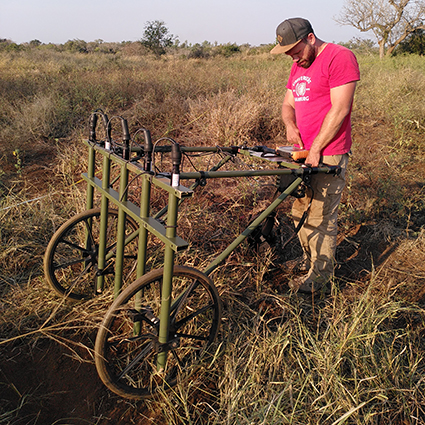Finding Early Farming Communities in southern Mozambique
Using Geophysical Surveys to examine potential new open-air sites
https://doi.org/10.34780/jf62-2br6
Abstract
The arrival of Early Farming Communities (EFC) in Mozambique is traditionally defined by the appearance of the “Bantu package”, especially of the so-called Matola pottery at the beginning of the 1st millennium CE. Although many EFC sites are known in Mozambique and South Africa, little is known about their settlement structures. In the case of Mozambique, the well-known Matola, Zitundo and University Campus sites were discovered by chance. The Department of Archaeology and Anthropology (DAA) at the University Eduardo Mondlane has successfully conducted surveys in the Changalane Administrative Post (Namaacha District, Maputo province) for years, documenting new potential EFC and Stone Age sites. Together with the German Archaeological Institute and the University of Hamburg, geophysical surveys were carried out on four sites. The aim was to get an overview of the sites and to locate potential excavation areas such as waste or storage pits, furnaces or huts. Although the method is already of great importance in Europe and is used regularly, only few comparative studies from sub-Saharan Africa are known. Within this region in the southeast and the described context of the continent the method is applied for the first time. A verification of the results in the form of test excavations is planned in the near future.
Parole chiave:
Mozambique, Geophysics





